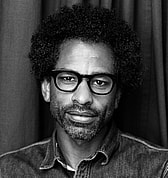Editor’s note: The following article is an op-ed, and the views expressed are the author’s own. Read more opinions on theGrio.
It’s hard to believe that Magic Johnson was once just a point guard for the “Showtime” Lakers of the 1980s. Since then, he’s become an iconic American for so many reasons other than basketball.
Of course, Magic was never just a point guard—he was a player of such unique brilliance that he redefined the game and the position he played. Never had someone so tall played point guard, but more importantly, never had someone moved the ball around the court the way he did.
He passed by finding angles that seemed impossible and by exploiting rhythms within the game that only he could see. He became a star because his game was thrilling to watch, even for casual NBA fans. His natural charisma was contagious to everyone around him.
Magic’s legendary basketball career made him worthy of an upcoming four-part documentary on Apple TV called They Call Me Magic, but it’s the other parts of his career that have made his life and legacy so important.
From the beginning, Magic became a NBA superstar at a time when the league was exploding in global popularity. He was a big part of helping the NBA become massive. Then, at a time when Americans’ fear of HIV and AIDS was at a paralyzing high, he announced that he was HIV positive. He then instantly became the most famous person with the virus. Even though HIV and AIDS was a frightening medical monster, Magic continued to smile, put people at ease and move through the world with a grace and dignity as only he could.
His first several years as a person with HIV helped humanize and normalize people who had the virus. He changed the perception of how we thought about the virus. Without giving lots of speeches, he taught us all important lessons—that people with HIV/AIDS are people who deserve respect, that the virus was a heterosexual problem, too, and it was not a death sentence. He showed tremendous courage and showed everyone that having HIV/AIDS does not mean you must retreat from life.

He went on to become an empire-building businessman who has helped bring jobs, experiences, and much-needed services into the Black community. His Magic Johnson Theaters have helped transform many neighborhoods and he was instrumental in bringing Starbucks into Black communities at a time when the company’s leadership thought that was impossible. He’s a visionary businessman who’s used his power and access to help change Black people’s lives.
They Call Me Magic shows all of this and much more. The documentary is also a candid conversation about his family. Many people will focus on his on-again, off-again relationship with his wife Cookie— which included him proposing and then calling it off several times. For me the deepest moment is when viewers learn more about Magic’s relationship with his son EJ.
EJ reveals that he knew he was gay at an early age, but says he felt like he needed to hide it from his family, mainly his father. He says he felt like he could be himself at school but not at home. When his mother finally realized how what her son had been hiding, she accepted him right away. But when they both broached the issue with Magic, he bristled. He was not comfortable. His son ran from the room.
Magic admits that it took time for him to learn to accept his son for who he is, and he eventually did. During They Call Me Magic, we see clips of Magic and EJ sitting on the couches of national TV shows talking about their relationship. When Magic says he’s proud of his son and he truly accepts him, we can see EJ beaming with pride and gratitude.
That’s who Magic is. He has been an extraordinary American for over four decades and his life has transformed many other lives. He was an athletic genius whose life was turned upside down by HIV, but he handled that potential nightmare with grace and aplomb.
He’s grown into an aspirational human being even for those who don’t care about basketball.

Touré is the host of the podcast “Touré Show” and the podcast docuseries “Who Was Prince?” He is also the author of seven books.
TheGrio is FREE on your TV via Apple TV, Amazon Fire, Roku, and Android TV. Please download theGrio mobile apps today!


